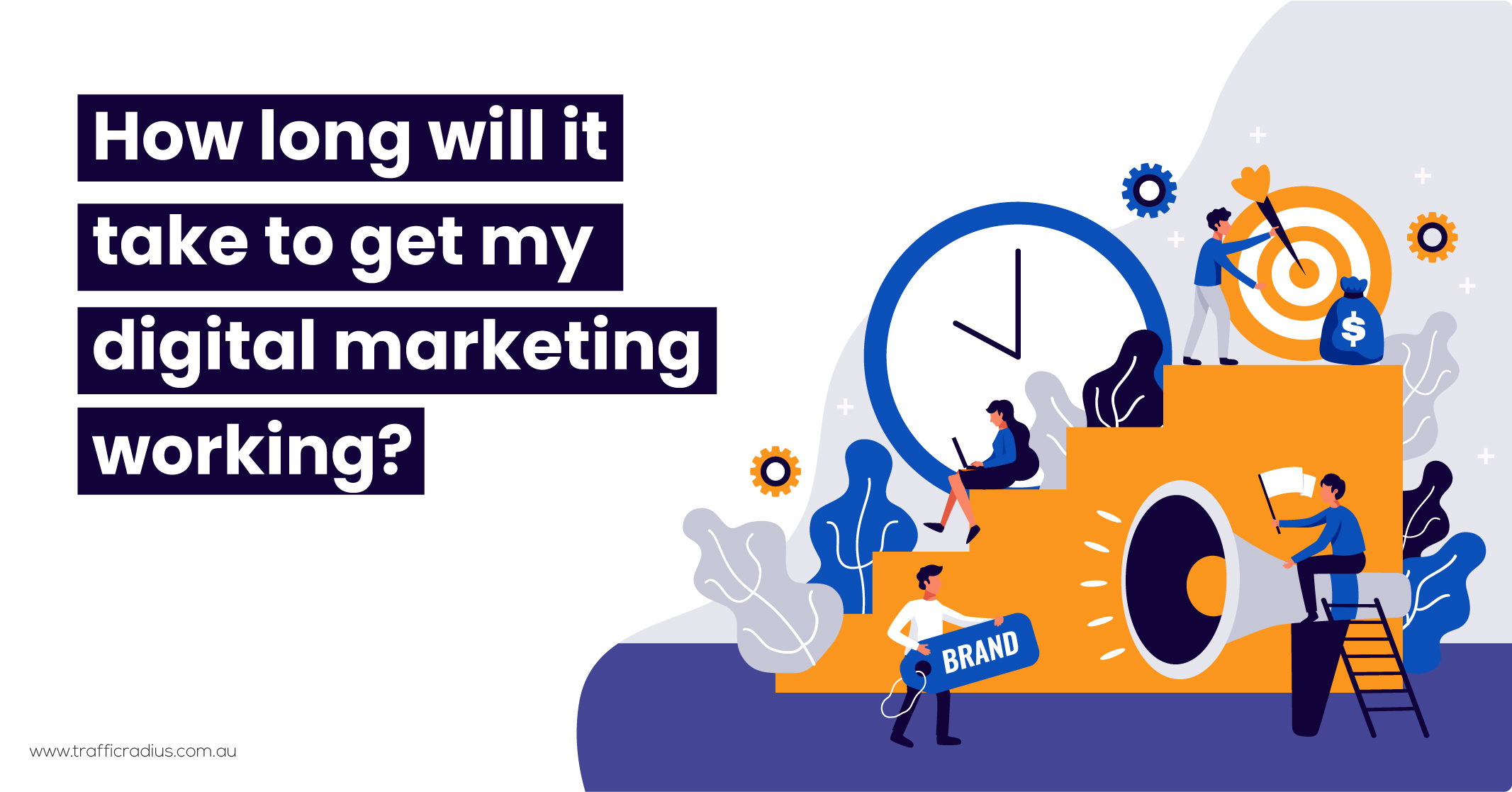I hope you enjoy reading this blog post.
If you want to get more traffic, Contact Us

Click Here - Free 30-Minute Strategy Session
Be quick! FREE spots are almost gone for this Month. Free Quote

Digital marketing requires time to generate measurable outcomes, as multiple factors influence the process. Typically, the timeline can vary based on the strategies implemented, the industry, and the competition.
Each method requires consistency and performance analysis to ensure sustainable growth.

Click Here – Free 30-Minute Strategy Session
Be quick! FREE spots are almost gone for this Month
Several factors determine the success of digital marketing campaigns. Understanding these elements can help maximise efforts and streamline strategies effectively.
A consistent approach and adaptability also play vital roles in driving results for long-term growth.
Setting realistic expectations is crucial in digital marketing to avoid frustration and enable informed decision-making. Results often depend on multiple variables, including the chosen strategies, target audience behaviour, industry trends, and competition. Assuming instant success can lead to unnecessary pressure, while overlooking possible timeframes might hinder accurate progress evaluation.
Digital marketing strategies, such as organic SEO, generally take months to yield visible outcomes. Paid campaigns may show faster results but often require ongoing tweaks for optimisation. Brands must align expectations with specific goals, understanding that consistent efforts are essential for measurable impact. Realistic timelines promote patience and strategic focus, fostering long-term success.
Digital marketing strategies can be divided into short-term and long-term approaches, each serving distinct objectives. Short-term strategies are designed to achieve immediate results, often relying on paid advertising like pay-per-click (PPC) campaigns or limited-time promotions to generate quick traffic and conversions. These methods deliver fast outcomes but may require a substantial financial investment.
On the other hand, long-term strategies, such as search engine optimisation (SEO), content marketing, and social media engagement, focus on building sustained brand growth and organic reach. Though slower to show results, these methods establish credibility and deliver enduring benefits over time, creating lasting impact.
Search Engine Optimisation (SEO) operates as a long-term strategy within digital marketing, often requiring months to deliver noticeable results. Its timeframe is influenced by factors such as website age, competition, and targeted keywords. Initial results can appear within 3-6 months, but significant organic visibility may take 6-12 months or more.
To progress, SEO involves stages such as:
Consistent adjustments ensure relevance amid evolving algorithms, reflecting SEO’s persistent and cumulative nature over time.
Pay-Per-Click (PPC) advertising offers one of the quickest ways to see measurable results in digital marketing. With PPC campaigns on platforms such as Google Ads or Facebook Ads, businesses can instantly direct traffic to their websites. Unlike organic strategies, PPC skips the need to build authority over time and instead leverages bidding systems to place ads in front of targeted audiences.
Success depends on multiple factors, including ad relevance, keyword selection, and budget allocation. Well-optimised campaigns can generate leads and conversions within hours or days. However, refining performance requires ongoing analysis of click-through rates (CTR), cost-per-click (CPC), and conversion metrics.
Social media marketing requires consistent effort to foster meaningful engagement. Success depends on several factors, including the platform used, content quality, posting frequency, and audience interaction. Building trust and relationships with followers often spans months.
Brands must focus on creating valuable, shareable content that resonates with their target audience. Engagement metrics such as likes, comments, shares, and direct messages gradually improve as participation increases.
To sustain growth:
This long-term approach contributes to authentic connections and lasting results.
Content marketing offers long-term benefits by establishing trust, educating audiences, and building brand authority. Unlike paid campaigns, its impact is gradual, often taking months to materialise. Blogs, videos, webinars, and eBooks contribute to a business’s credibility, but consistent publishing and strategic distribution are crucial. Search engines reward high-quality content over time, enhancing organic traffic and visibility. Social sharing and backlinks further amplify reach, but these grow incrementally. Successful metrics include increased website engagement, returning visitors, and improved domain authority. Patience and persistence are key, as effective content marketing fosters a loyal audience by offering value rather than immediate results.
Analytics and iteration play a crucial role in shaping the timeline for achieving digital marketing results. By leveraging analytics, businesses can monitor performance metrics such as website traffic, conversion rates, and engagement levels. These insights highlight what strategies are effective and where adjustments are needed.
Iteration involves refining campaigns based on this data, allowing marketers to optimise ads, content, and targeting for better outcomes. Frequent assessments enable swift corrections, reducing wasted time on ineffective tactics.
Additionally, analytics-driven iteration fosters continuous improvement, ensuring strategies remain aligned with audience preferences and market trends. This systematic approach accelerates progress toward measurable results.

LEAVE A REPLY